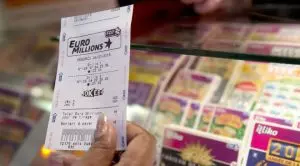 UK authorities disclosed plans to enforce stricter measures in order to close down a loophole in the current legislation, which enables lottery websites to offer UK-based customers EuroMillions betting options at reduced prices.
UK authorities disclosed plans to enforce stricter measures in order to close down a loophole in the current legislation, which enables lottery websites to offer UK-based customers EuroMillions betting options at reduced prices.
The country’s Gambling Act prohibits UK punters from placing bets on National Lottery games at prices that are lower than buying an actual ticket. However, lottery websites widely exploit the loophole in the current legislation by providing UK residents with the option to wager on the outcomes of EuroMillions draws in other countries that are members of the EU. The results of the draws are the same in all EU countries that participate in the EuroMillions lottery games.
UK ministers argue that unlike the National Lottery, such lottery websites are not obliged by law to contribute a given percentage of their revenue to sports and arts, which practically means they are “taking money away from good causes”. An example would be Lottoland, a website that is fronted by television star Chris Tarrant, where punters from across Europe can bet on the outcomes of lottery draws. Needless to say, lottery players from the UK also take advantage of this website.
The price of making a bet at Lottoland is only £2.00 as opposed to the £2.50 customers are expected to pay per line for a ticket from the National Lottery. Because of this, the UK government is now set to take stricter actions to close the loophole. What is more, the Advertising Standards Authority (ASA) issued a ruling against Lottoland earlier this year, citing misleading advertising as the cause.
Lotteries Minister Tracey Crouch commented the government plans on taking action in order to prevent confusion in regard to EuroMillions draws and ensure the funds for good causes are well protected.
Nigel Birrell, Chief Executive of Lottoland, responded to the news by saying the company welcomes the opportunity of partaking in the discussions regarding the new legislation. Despite that, Birrell went on to express an opinion that monopolies like the National Lottery not only impede innovation and progress, but also work to the disadvantage of the end consumers. Birrell suggested that lottery operators should update the products and services they offer so that lottery games can maintain their relevance on the market.
Lottoland’s Chief Executive commented that lottery games have suffered a decline in popularity in recent years. Birrell attributed the current drop in lottery sales to the outdated offerings and the lack of choice and product innovation in this sector. He explained that the cut prices of bets on the main draw were an attempt to offer a suitable alternative to UK customers, who were dissatisfied with the EuroMillions tickets’ price increase.
Birrell went on to express his belief that official lottery franchisee Camelot was simply lobbying to maintain its monopoly and drive the competition away. He also accused Camelot of attempts to distract customers from the increase in their prices.
Daniel Dyball, Camelot’s Policy Chief, commented the National Lottery welcomes the decision of the UK government to take action against the exploitation of the loopholes in the current legislation. Dyball concluded by saying the national lotteries’ chief objective is to ensure as much money as possible is raised for good causes like art and sports.
- Author


